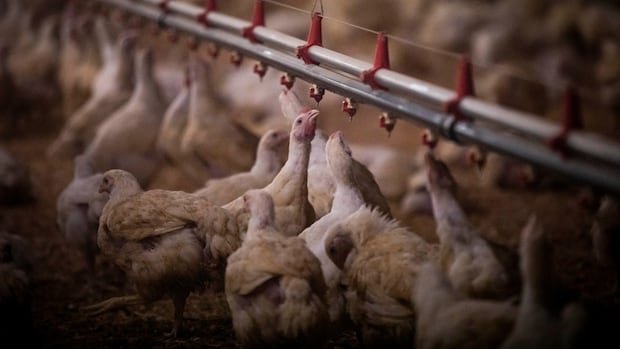Commercial poultry farmers in British Columbia have been directed to house their flocks indoors during the avian influenza season following outbreaks in Alberta. The order, issued by B.C.’s Chief Veterinary Officer Dr. Theresa Burns on September 10, prompted the implementation of Red Biosecurity Protocols by the B.C. Poultry Association.
Shawn Hall, director of the B.C. poultry industry’s emergency operations center, emphasized the farmers’ dedication to safeguarding their flocks and local food supply by adhering to stringent biosecurity measures. As migratory birds like geese move south, the risk of avian influenza transmission to chicken and turkey farms escalates.
Last year, 81 poultry farms in B.C. reported avian influenza infections between October and January, as disclosed by Hall. All commercial farmers with production quota are obligated to comply with the prescribed orders and protocols.
Under the Red Biosecurity Protocols, poultry farmers are required to follow strict guidelines, including wearing personal protective gear and thoroughly sanitizing their equipment and vehicles. Despite the inconvenience of visitor restrictions and rigorous protocols, B.C. farmers prioritize their flock’s safety and uphold the standards set by the Canadian Food Inspection Agency (CFIA).
Investments in specialized ventilation systems with filters have been made by many farmers to prevent the entry of viruses carried by wild animals. In the event of an infection, all birds within a commercial flock must be culled in accordance with CFIA regulations.
Since the confirmation of the H5N1 strain of avian influenza in B.C. in 2022 amid a global outbreak, seasonal precautions have been in place. Wild migratory birds such as ducks can serve as vectors for the virus during their northward and southward flights in spring and fall due to B.C.’s location on a migratory flyway.
Chantelle Abma from Ducks Unlimited Canada advises against feeding wild ducks due to the risk of avian influenza transmission. Waterfowl like ducks can carry the virus without showing symptoms, posing a threat not only to other birds but also to humans, pets, and livestock. Reporting sick or dead wild birds to B.C.’s wild bird reporting line at 1-866-431-2473 is encouraged to curb disease spread.
By following these preventive measures and remaining vigilant, stakeholders aim to minimize the impact of avian influenza outbreaks on the poultry industry and public health.

